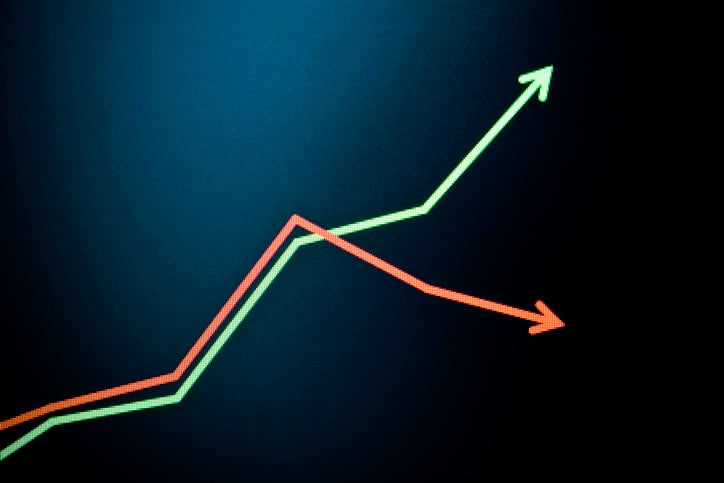
Keep calm, stagger on. Stocks sold off in their largest single day downswing in almost four months over fears that the Coronavirus is spreading. Housing numbers missed the mark but investors focused their attention on travel and gaming stocks… and their Purell.
N O T E W O R T H Y
- The shoeshine boy has a stock pick for you. Wall Street is full of sayings and allegories designed to remind investors, in the heat of passion, about what not to do… again and again. One famous story has Joseph Kennedy (famed businessman and father of JFK) stopping to have his shoes shined on the way to his Wall Street office. The shoeshine boy supposedly told Kennedy that he was going to invest all of his tip money in Hindenburg stock. We all know how that turned out for Hindenburg and the stock market in 1929 for that matter. Kennedy later famously told the story and stated that “you know when its time to get out of the market when the shoeshine boy is giving you stock tips”. Kennedy credits that methodology for helping him save his fortune during the 1929 crash. There are many versions of that story and quote but the theme is a common one. When smalltime average folks get into the market it is usually time to sell. The general theory is that uninformed investors are usually the last ones to enter the market and they are usually driven by greed. That leads us to another famous adage which goes something like “buy when there is fear and sell when their is greed”. So if you are following this trail of proverbs the message would be: when the small investors jump in large investors are probably selling. Many investors, large and small sat on the sidelines last year as they watched the S&P 500 grow by +28.88%. This likely resulted in many retail investors deciding to take the leap in the new year. There is evidence that individual investors are currently getting more bullish on the stock market (the American Association of Individual investors tracks it here: https://www.aaii.com/sentimentsurvey ). For institutional investors who are purportedly more well informed, they do things a bit differently. As many of them are judged by their annual performance they typically get aggressive in the beginning of the year as they have a clean slate… and a whole year to make up losses if they are wrong. Interestingly, institutional investors also become more active toward the end of the year… usually desperate to catch up to their benchmarks. Sounds like a mess doesn’t it? Don’t fret, there is a simple solution. Have a long term, methodical approach, match your risk to your objectives, and control your risk through diversity.
- Comorbidity. As investors ponder the likely results of Coronavirus, many have already speculated that travel, leisure, energy, and gaming have been hit the hardest. The hypothesis is clear as those sectors have all suffered since news of the virus hit front and center last week. Word of advise: unless you were one of the first ones to get into that trade it is probably smart to avoid it (see above). What should not be avoided is a rational thought process on the real impacts of the outbreak. For now, the immediate effects are limited to China, where many restaurants and leisure venues have actually been shut down. Companies that have direct consumer exposure to the region will most likely suffer side effects from the shutdowns. Yum! Brands, which operates fast food venues like Pizza Hut, TacoBell, and KFC in China is one example. Starbucks, which will announce its earnings today, will most likely mention potential impacts in the conference call. They operate 4100 stores in mainland China. Despite the trade war between the US and China (remember that?), many US companies still rely on China as a key part of their supply chains. Think Apple, who manufactures the iPhone there. They too will announce earnings today and we can expect to hear of potential impacts on their call. Finally, my regular readers know that consumer confidence is a bit of an obsession for me. We will get consumer confidence numbers from the Conference Board this morning and while they reflect January’s sentiment (before news of the virus broke), this remains one of the most critical areas to keep an eye on. A more present number, because it is updated twice a month, is the University of Michigan Sentiment number. The final number for January will be released this Friday but a preliminary number for February will be released on February 14th. Can the Coronavirus cause the US to go into a recession? Probably not, but an unconfident consumer certainly can. We will be watching for those symptoms very carefully.
THE MARKETS
Stocks sold off yesterday as fears from the Coronavirus spread though the markets. The S&P 500 dropped by -1.57%, the Dow Jones Industrial Average sold off by -1.57%, the Russell 2000 traded down by -1.09%, and the NASDAQ Composite Index gave up -1.89%. Bonds as a safe haven climbed again yesterday with 10-year treasury yields dropping by -8 basis points to 1.60%. Gold climbed by +0.68% and WTI crude fell another -1.94%.
NXT UP
- Durable Goods Orders are expected to have grown by +0.4% compare to last month’s decline of -2.1%.
- Consumer Confidence is expected to have increased to 128 from 126.5 in the prior month.
- This morning PulteGroup, CIT Group, Xerox, and United Technologies beat while Pfizer, Harley Davidson, McCormick, and 3M missed their marks. Lockheed Martin will announce before the bell and announcements are expected from Starbucks, Apple, Xilinx, AMD, and eBay after the close.
- The Treasury will sell $32 Billion 7-year notes.
Want to read more?
You can read all of my past posts, download my daily chartbooks and weekly calendars on my blog here: https://www.siebertnet.com/blog/
.png)

